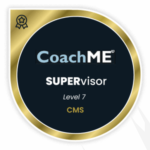By Catherine Finger
 Have you ever experienced a powerful mentor relationship in your personal or professional life? For those of us lucky enough to be engaged and employed as professional coaches, mentor coaching can be thought of as a developmental relationship between coach practitioners with the goal of sharpening the skills of the client coach in alignment with clear professional standards. David Clutterbuck (2005,) author and thought leader on the subject of coaching and mentoring, suggests that developmental relationships include rapport building, direction setting, progress making, winding down, and moving on.
Have you ever experienced a powerful mentor relationship in your personal or professional life? For those of us lucky enough to be engaged and employed as professional coaches, mentor coaching can be thought of as a developmental relationship between coach practitioners with the goal of sharpening the skills of the client coach in alignment with clear professional standards. David Clutterbuck (2005,) author and thought leader on the subject of coaching and mentoring, suggests that developmental relationships include rapport building, direction setting, progress making, winding down, and moving on.
Clutterbuck’s basic elements are reflected in any good coaching contract as well as within individual coaching sessions. They may also be extended as a broad framework for the mentor coaching process overall. In this post I’m offering my own ideas on the power and importance of a mentor coaching experience.
Mentor coaching is a high quality professional and personal growth experience and an important part of a coach’s ongoing development. Coaching can be a lonely profession. Connecting with experienced coaches specifically trained to guide and support coaches by offering a framework for reflection on their practice is a vital professional growth tool. Participating in quality mentor coaching over time while a coach engages with clients strengthens their practice by enriching their perspectives and enhancing their skills. Mentor coaching supports and helps expand a coach’s unique personal style and helps strengthen confidence and competence.
- Mentor coaching occurs over a minimum of three months and typically includes ten or more sessions. While this time frame matches the ICF accreditation and renewal requirements, the design also allows for a realistic picture of a coach to emerge as they work through a typical client load over a series of weeks or months. Patterns of interest may emerge organically during a series of coaching sessions that occurr while the coach is working with a mentor that might not otherwise have been brought to the mentor. Reflecting on such patterns can lead to greater growth and exploration of who the coach is and is becoming as well as how they practice and what choices they make while in coaching sessions.
- Mentor coaching is a requirement for ICF coach accreditation and renewal at all three levels of coaching practice (ACC, PCC, MCC.) Mentor coaching offers a strong focus on developing a coach’s skills in alignment with the ICF coaching competencies. The supportive structure offered within coach mentoring allows coaches to explore, improve and experiment with their own applications and understandings of ICF coaching competencies. The ongoing, structured reflection that occurs during a mentor coaching experience helps practitioners apply coaching competencies more directly and consistently to both their clients and themselves.
- Mentor coaching offers a framework for learning designed to support a coach in preparing tapes for submission to ICF in partial fulfillment of accreditation requirements at their level of aspiration. Session tapes are submitted to the mentor coach for review and subsequent mentor coaching sessions will include explorations with competency mapping relative to the taped session(s.) While the goal of mentor coaching is, in part, to prepare the client coach to successfully prepare and submit tapes that will pass at the coach’s desired accreditation level, participating in a mentor coach experience does not guarantee that submitted tapes will pass at the ICF level of aspiration. Non-ICF coaches find the client taping and review process extremely beneficial as well. The practice of taping and reviewing coaching sessions with a trained, experienced colleague yields rich professional development—regardless of the coach’s interest in the accreditation process.
- Mentor coaching includes a focus on the entirety of the client coach—and not just the skill development aspects of the mentor coach experience. Thus, mentor coaching respects and invites the “self” of the coach and purposes to support the coach in terms of who they are and how they show up as a coach. Coaching is an intimate art, relying on the strength of the partnership built between the client and the coach over time. Mentor coaching provides an external perspective on a coach’s habits and experiences with clients and carves out a judgement free zone for reflection and collegial conversation around best practices and possibilities.
- Mentor Coaching provides a safe space that fosters deep exploration and reflection. Mentor coaches invite client coaches to come to the coaching conversation in their integrity—a “come as you are” opportunity for reflection and growth. Creating safety though clear alliances and professional standards bearing allows coaches the freedom to share their strengths and confess their fears.
- Mentor Coaching can be a transformative experience. Sometimes all a mentor coach need offer is space and the warmth of a climate of curiosity for the client coach to revel in the freedom of full expression without judgement or attachment. Being able to “wonder out loud” about issues or practices with spaciousness while being deeply listened to without interruption is a powerful experience.
- Mentor Coaching can be a resource rich experience. Sharing or co-constructing resources and opportunities is another powerful part of the mentor coaching journey. Mentor coaches have a unique perspective on the interests and readiness levels of their client coaches and can offer suggestions for additional learning experiences, courses, or practices that might enhance a client coach’s practice and overall well-being.
Catherine Finger, PCC/NBC HWC is an award-winning executive coach, certified mentor coach and coach supervisor and is currently welcoming new client coaches for 2025. To schedule your chemistry call and learn more about mentor coaching or coach supervision, contact Catherine today.
 The way we address ourselves, think about ourselves and talk to and about ourselves matters. Language has the power to both communicate and shape our thoughts. We use language to express our thinking—but our language can also cause subtle shifts in our thinking. When I allow stray thoughts to linger unexamined and unchallenged in my mind, I run the risk of developing beliefs connected to those thoughts. These beliefs may serve to strengthen me, or these beliefs may undermine me.
The way we address ourselves, think about ourselves and talk to and about ourselves matters. Language has the power to both communicate and shape our thoughts. We use language to express our thinking—but our language can also cause subtle shifts in our thinking. When I allow stray thoughts to linger unexamined and unchallenged in my mind, I run the risk of developing beliefs connected to those thoughts. These beliefs may serve to strengthen me, or these beliefs may undermine me.
 As high-quality executive coaching grows in popularity as a leadership development tool for aspiring, emerging and excelling leaders—the pathways for preparing, certifying and monitoring the growth and development of coach practitioners merits further study.
As high-quality executive coaching grows in popularity as a leadership development tool for aspiring, emerging and excelling leaders—the pathways for preparing, certifying and monitoring the growth and development of coach practitioners merits further study.



 CEO Today announced the full list of winners of their 2022 CEO Today Executive Coaching Awards–and Catherine Finger is featured on page 79! You may see the listing from the CEO Today journal here:
CEO Today announced the full list of winners of their 2022 CEO Today Executive Coaching Awards–and Catherine Finger is featured on page 79! You may see the listing from the CEO Today journal here: 













